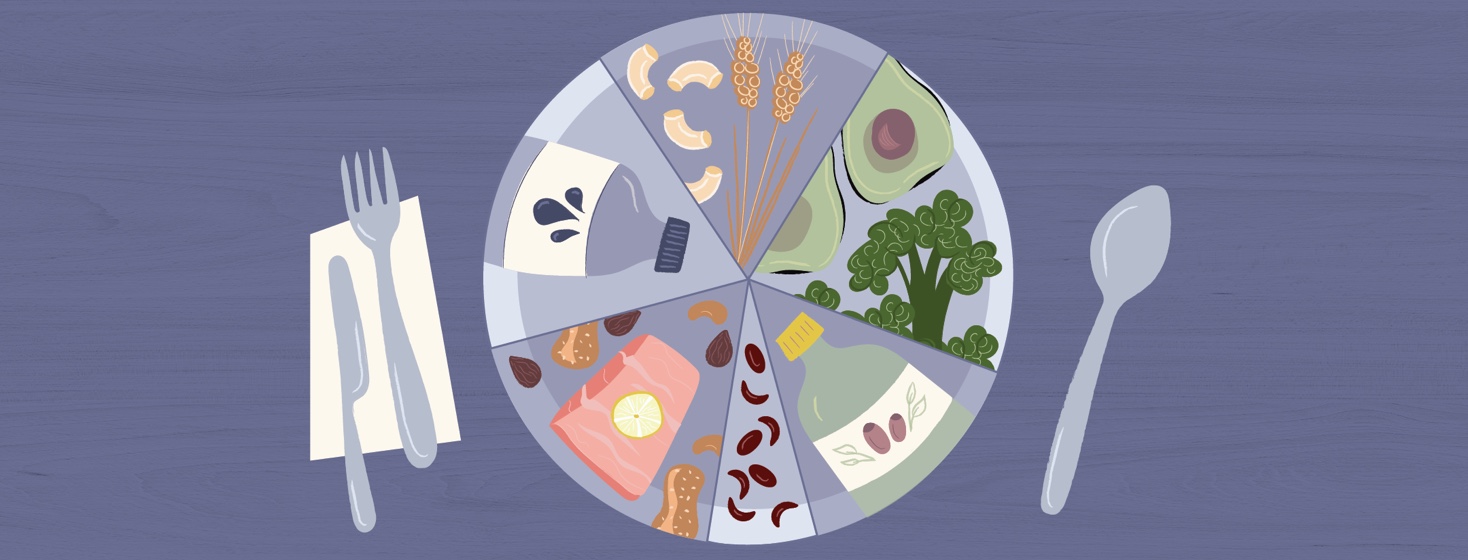Can My Diet Help Manage My Pain Crises?
A balanced diet is beneficial for everyone, but it is especially important for people with sickle cell disease (SCD). SCD is linked to low levels of essential nutrients including proteins, minerals, and vitamins. This lack of nutrients may contribute to complications of sickled cells.
Finding a diet that provides you with plenty of protein and other nutrients can help reduce pain and other complications of SCD. Talk to your doctor about what foods you should include or avoid in your diet. They can also refer you to a dietitian or nutrition specialist.
What is the role of nutrition in sickle cell disease?
People with SCD often have lower levels of essential nutrients and require more calories. This may be because of a higher metabolism, which causes you to use up proteins and energy faster. It also could be because nutrients do not get absorbed well in the intestines. SCD is linked to low levels of:1-4
- Iron
- Zinc
- Magnesium
- Folic acid
- Antioxidants (vitamins A, C, and E)
- Vitamin D
- Calcium
- Selenium
- Proteins
- Arginine
- Fatty acids
These nutrients all play different roles in our health. For example, zinc is important for growth and development, while vitamin D plays a role in bone health. Some studies have shown that increasing nutrient intake reduces sickling and improves health outcomes. However, we do not know exactly how these deficiencies contribute to SCD.2
Low nutrient intake is also linked to chronic pain. Diets high in whole grains, fish, fruits, green vegetables, and olive oil provide nutrients that can reduce chronic pain.5
What are some tips for maintaining a healthy diet?
There are many steps you can take to improve your diet:
Find a diet that increases and balances nutrients
SCD causes you to take in less energy from your food, especially during acute episodes. Try to follow a diet that gives you plenty of calories and nutrients. Your diet should be balanced and focus on:6,7
- Whole-grain breads, rice, pastas, and cereals. These are high in folate, selenium, vitamin B, and magnesium.
- Fruits and vegetables, especially dark green leafy vegetables. These are high in folate, fiber, and vitamins A and C.
- Milk, yogurt, and cheese. These are high in calcium and vitamin D.
- Meats, beans, nuts, and seeds. These are high in protein, zinc, iron, and fatty acids.
- Vegetable oils. These are high in vitamin E and fatty acid.
Try to have foods from different food groups each time you eat during the day. This can help you maintain the right levels of all essential nutrients. Also, make sure to bring food with you when you are away from home.7
The exact diet varies from person to person. Some people find that a high-fat, low-carbohydrate diet helps to reduce pain. Other people notice an improvement with a diet high in proteins and essential amino acids, especially arginine. A dietitian or nutrition specialist can help you find what is right for you.2,5
Increase calorie intake
Here are some easy ways to get enough energy while still eating healthy:8
- Eat more frequently, at least 3 meals a day and several snacks
- Add oil when cooking vegetables and meat
- Use gravy and sauce
- Add nuts, beans, and cheese to salads
- Add nuts to cereal
- Add powdered milk to soups and sauces
- Replace sodas and sports drinks with whole milk or juices
- Choose high-calorie snacks like avocados, nuts, and milk
You can also find high-energy nutrition recipes in cookbooks.8
Drink plenty of water
Hydration helps prevent blood cells from sickling. It is important to stay hydrated, especially during exercise or in high temperatures.9
Take nutrient supplements
Low levels of vitamins and minerals reduce your antioxidants and may trigger vaso-occlusion (blocked blood flow). Some studies have shown that taking supplements can reduce the number of sickle cells. Some of these supplements include:10
- Vitamin A
- Vitamin B6
- Vitamin C
- Vitamin E
- Magnesium
- Zinc
Take fatty acid supplements
Children with SCD often have low levels of omega-3 and other fatty acids. These are important to keep red blood cells flexible. Some studies have shown that taking certain fatty acid supplements can reduce anemia.10
Talk to your doctor
Experts do not know much about the benefits of certain diets for people with SCD. Some foods and nutrients may help 1 person but not affect someone else. Talk to your doctor to discuss which foods to include or avoid in your diet. They may suggest you eliminate foods before slowly reintroducing them. This is a common way to identify foods that cause problems.

Join the conversation